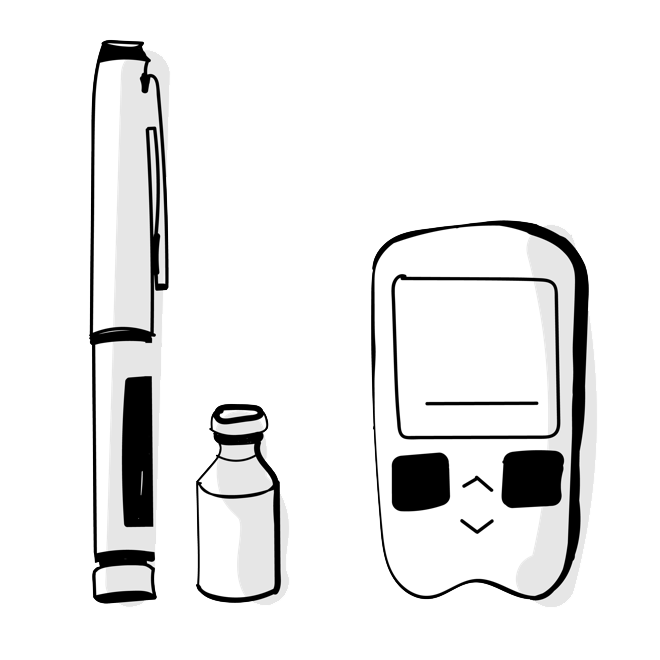Looking for a low-tech solution? Meters and injections are the two basic tools of diabetes care. And while it takes a little more effort on your part to monitor, you can easily buy a meter and test strips in any pharmacy. If you get a prescription from your healthcare provider, your insurance will likely cover the strips. Some people choose this combo because of its simplicity.
Wisdom from others using a Meter & Injections
Routine
The meter is easy to get, and injections are low maintenance.
Sean, 33
Costs
I do wish I could track it better without having to poke myself so much.
Chad, 25
Insurance
Dealing with insurance is tough, but you can do it! Check out our How To Get It Guide to get the basics straight and understand what youll need to get approved.
Pros
Ease of Supplies
You don't have to worry too much about running out of supplies. Most local pharmacies carry everything you need to manage your diabetes.
No Attached Devices
Some people feel that using a meter and injections are more convenient if they are very active or involved in highly physical activities, since you don't have anything attached to your body.
Cons
Manual Effort
This combo can require more frequent blood sugar tests, injections, and mathematical calculations.
More Needles
This combo maximizes the number of injections and finger sticks. Adding other devices can greatly decrease the number of needles your skin meets.



